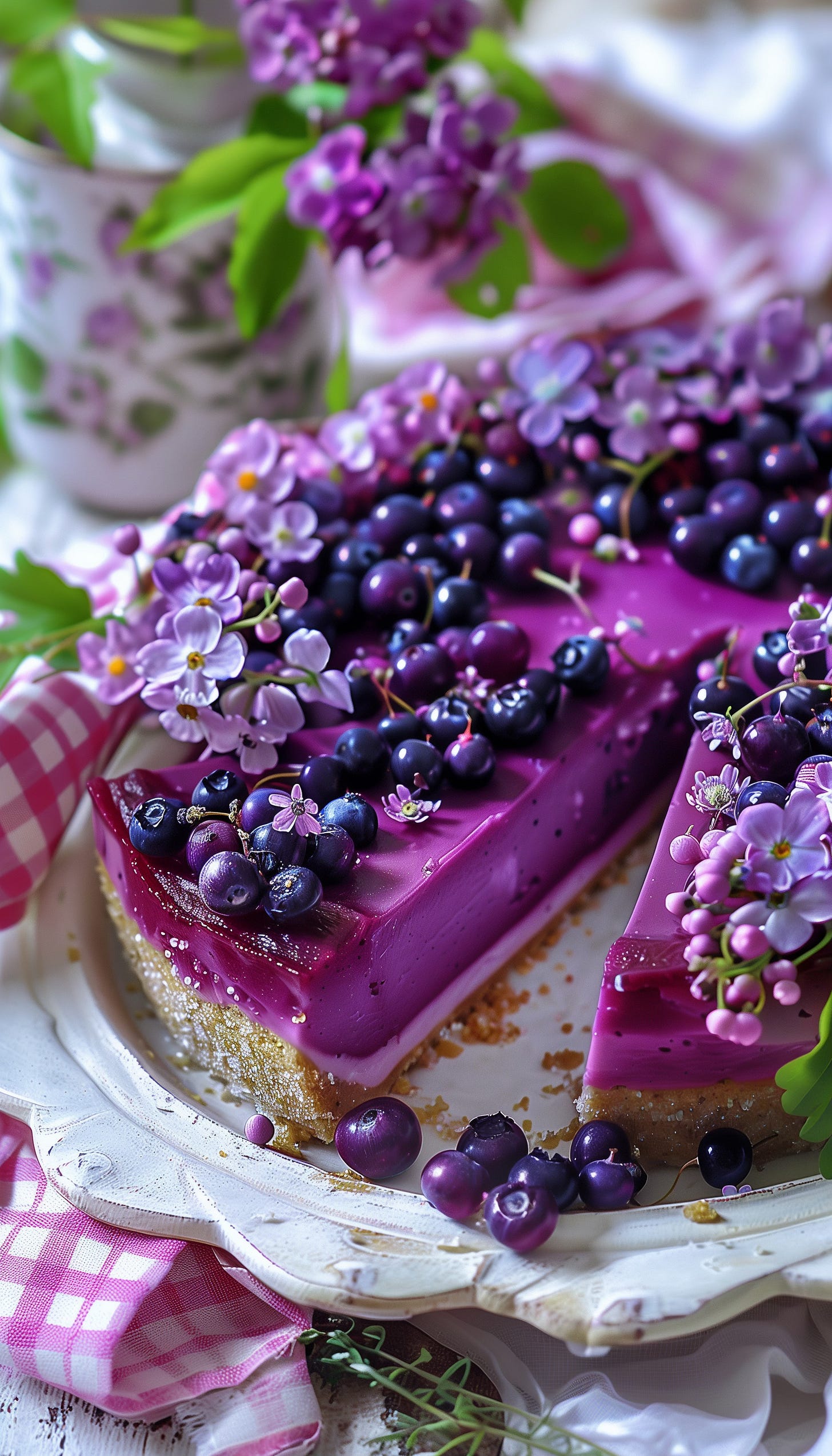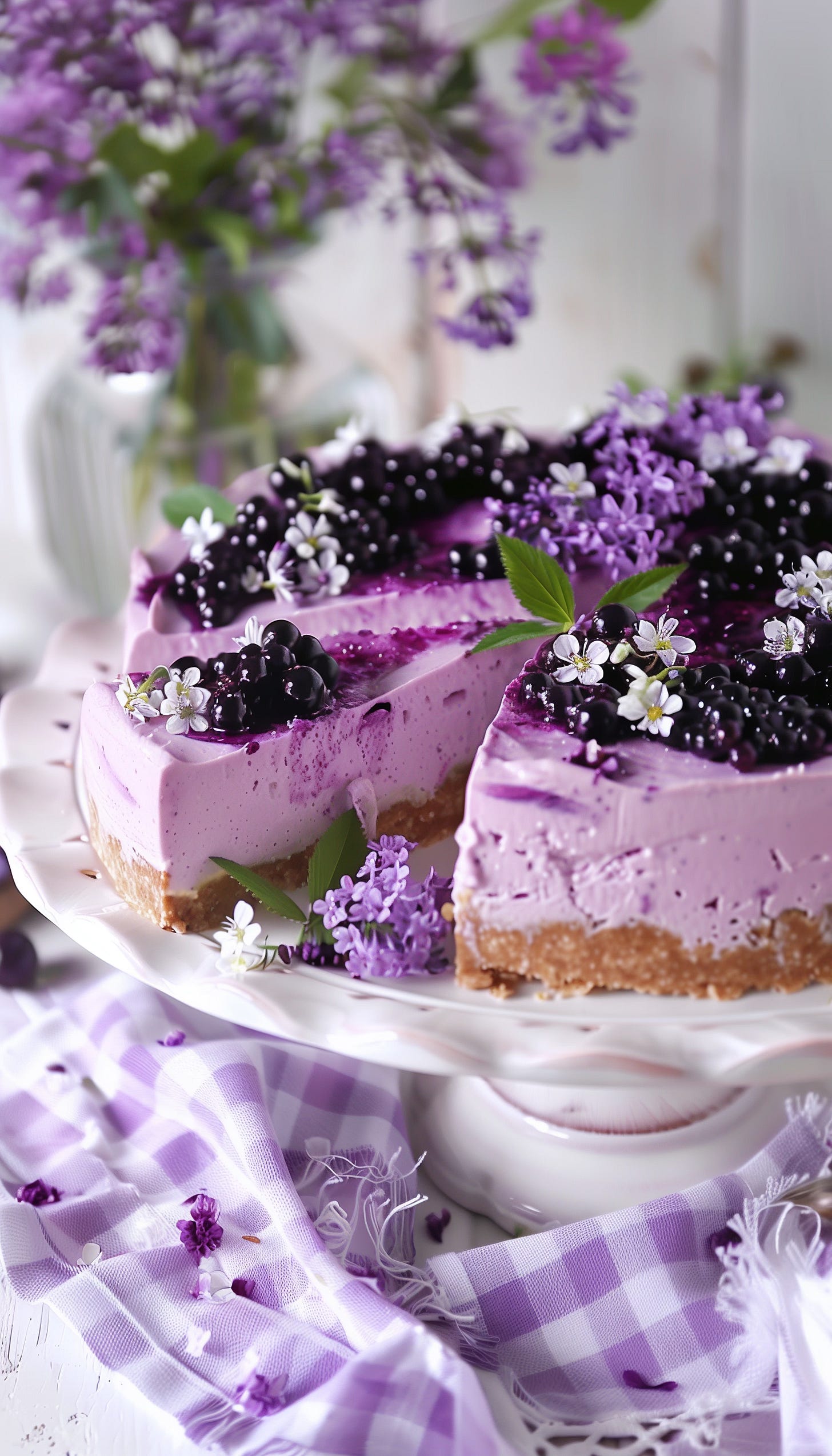Elderberries, those tiny dark jewels adorning bushes in late summer, have been revered for centuries for their medicinal properties. From ancient times to modern days, these small fruits have been cherished for their potential health benefits. Let's delve into the historical significance and contemporary science behind elderberries, along with two delightful recipes that showcase their versatility and taste.
1. Rich in Antioxidants:
- Elderberries are packed with antioxidants, including flavonoids and phenolic acids, which help combat oxidative stress and inflammation in the body.
- These antioxidants contribute to the prevention of chronic diseases like heart disease, diabetes, and certain cancers, promoting overall well-being.
2. Immune-Boosting Properties:
- Historically, elderberries have been revered for their ability to bolster the immune system. They were commonly used in folk medicine to ward off colds, flu, and other respiratory ailments.
- Recent studies suggest that elderberry extracts may help reduce the duration and severity of cold and flu symptoms by stimulating the immune response.
3. Supports Heart Health:
- Consumption of elderberries may promote heart health by reducing cholesterol levels and supporting healthy blood pressure.
- The anthocyanins found in elderberries have been linked to improved endothelial function, which plays a crucial role in cardiovascular health.
4. Anti-Inflammatory Effects:
- Elderberries possess potent anti-inflammatory properties, thanks to compounds like quercetin and anthocyanins.
- These anti-inflammatory effects may help alleviate symptoms of inflammatory conditions such as arthritis, promoting joint health and mobility.
5. Digestive Aid:
- Traditionally, elderberries have been used to aid digestion and relieve gastrointestinal distress.
- Their high fiber content supports healthy digestion by promoting regularity.
Historical Significance:
Elderberries have a long history of medicinal use, dating back thousands of years. Ancient Egyptians, Greeks, and Native Americans utilized elderberries for their healing properties. They were often used to treat various ailments, including infections, wounds, and fever.
Safety Note: Are Elderberries Poisonous Raw?
It's important to note that elderberries can be toxic if consumed raw. Elderberries contain cyanogenic glycosides, which can release cyanide when ingested in large quantities. Eating raw elderberries, especially the seeds, can cause nausea, vomiting, and other gastrointestinal symptoms.
To safely consume elderberries, they should be cooked or processed properly. Cooking elderberries at high temperatures deactivates the cyanogenic glycosides, making them safe for consumption. Elderberries are commonly used to make syrups, jams, and cooked desserts, where they are cooked thoroughly before consumption.
Additionally, commercially available elderberry products such as syrups and supplements are typically processed to remove any toxic compounds, ensuring their safety for consumption. It's essential to exercise caution when handling elderberries and to avoid eating them raw.
Recipe: Elderberry Syrup
Ingredients:
- 1 cup fresh elderberries (or ½ cup dried elderberries)
- 3 cups water
- 1 cup honey
- 1 cinnamon stick
- 1-inch piece of fresh ginger (sliced)
- 3 cloves
Instructions:
1. In a saucepan, combine elderberries, water, cinnamon stick, ginger, and cloves.
2. Bring the mixture to a boil, then reduce heat and simmer for 30-40 minutes, until the liquid has reduced by half.
3. Remove from heat and allow the mixture to cool slightly.
4. Strain the liquid through a fine-mesh sieve or cheesecloth into a clean jar.
5. Stir in honey until dissolved.
6. Store the elderberry syrup in the refrigerator for up to two weeks. Take 1-2 tablespoons daily for immune support.
Recipe: Elderberry Cheesecake with Fresh Blueberry Topping
Ingredients: For the crust:
1 ½ cups graham cracker crumbs
⅓ cup melted butter
2 tablespoons sugar
For the filling:
16 oz cream cheese, softened
⅔ cup sugar
2 eggs
1 teaspoon vanilla extract
½ cup elderberry syrup
For the fresh blueberry topping:
1 ½ cups fresh blueberries
¼ cup sugar
1 tablespoon lemon juice
1 teaspoon cornstarch mixed with 1 tablespoon water
For the edible flower decoration:
Fresh edible flowers such as pansies, violas, or lavender
Instructions:
Preheat your oven to 325°F (160°C).
In a mixing bowl, combine graham cracker crumbs, melted butter, and sugar. Press the mixture into the bottom of a 9-inch springform pan.
In a separate bowl, beat cream cheese and sugar until smooth. Add eggs, one at a time, beating well after each addition. Stir in vanilla extract.
Pour half of the cream cheese mixture over the crust. Drizzle half of the elderberry syrup on top. Repeat with the remaining cream cheese mixture and elderberry syrup.
Use a knife to gently swirl the elderberry syrup into the cream cheese mixture, creating a marbled effect.
Bake for 45-50 minutes, or until the center is almost set.
Allow the cheesecake to cool completely before refrigerating for at least 4 hours or overnight.
For the fresh blueberry topping:
In a saucepan, combine fresh blueberries, sugar, and lemon juice.
Cook over medium heat until the blueberries start to release their juices and the mixture begins to thicken slightly, about 5-7 minutes.
Stir in the cornstarch mixture and cook for an additional 1-2 minutes until the sauce has thickened.
Remove from heat and let cool completely.
Once the cheesecake has chilled, pour the fresh blueberry topping over the top.
Return the cheesecake to the refrigerator for at least 1 hour to allow the topping to set.
For the edible flower decoration:
Carefully wash and dry the fresh edible flowers.
Arrange the flowers on top of the chilled cheesecake in a decorative pattern.
Serve the cheesecake chilled and enjoy the beautiful presentation and delicious flavors.
This enhanced version of the elderberry cheesecake not only features a luscious fresh blueberry topping but also adds a touch of elegance with a delicate arrangement of edible flowers on top. Enjoy this stunning dessert as a delightful treat for special occasions or gatherings.
Elderberries are not only delicious but also offer a variety of health benefits. From their immune-boosting properties to their anti-inflammatory effects, these tiny berries pack a powerful punch. Whether enjoyed as a syrup or infused into a decadent cheesecake, elderberries are a delightful addition to any wellness routine. Embrace the ancient wisdom of elderberries and savor their goodness for a healthier, happier you. Just remember to always cook elderberries thoroughly before consuming to ensure safety.








